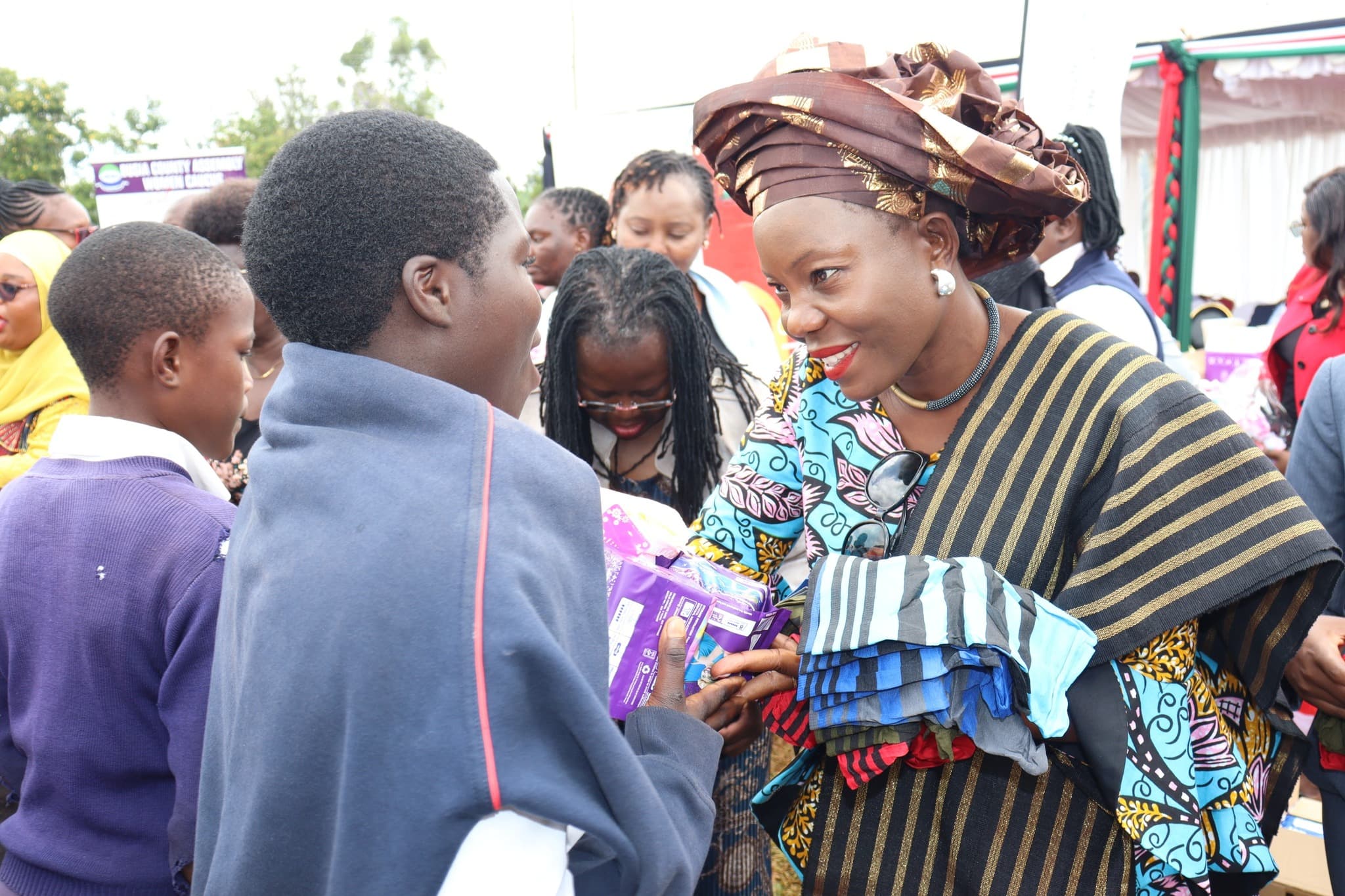We're loading the full news article for you. This includes the article content, images, author information, and related articles.
Busia County's female students have received only six sanitary pads in three years, severely impacting their education and well-being, despite a 2017 law mandating free provision.

Busia, Kenya – Thousands of schoolgirls in Busia County are facing significant challenges in managing their menstrual hygiene due to a severe shortage of sanitary pads, with the area's Woman Representative, Catherine Omanyo, revealing that girls have received only six pads over the past three years. This critical shortfall, highlighted by Omanyo during the Senate Mashinani sessions at Kwang'amor Secondary School on Tuesday, October 7, 2025, directly contravenes a 2017 law requiring the government to provide free sanitary pads to all schoolgirls.
Omanyo, a vocal advocate for women's rights and education, strongly criticised the Ministry of Gender for its failure to ensure adequate and consistent supply, particularly for girls from impoverished backgrounds. The lack of access to these essential products contributes to 'period poverty,' leading to increased absenteeism from school and, in some unfortunate cases, transactional sex, according to advocates and data from the National Aids Control Council.
The issue of menstrual hygiene and its impact on girls' education has been a long-standing concern in Kenya. In 2017, a landmark law was enacted, mandating the national government to provide free, sufficient, and quality sanitary towels to all schoolgirls, along with safe disposal methods. This legislative move was celebrated as a crucial step towards ensuring girls' retention in school and promoting gender equality in education. However, its implementation has been inconsistent, with Busia County experiencing a particularly dire situation.
Catherine Omanyo, who was elected as the Busia County Woman Representative in 2022, has consistently championed the cause of menstrual hygiene. In 2023, she encouraged nationwide support for menstruating girls and has actively participated in initiatives to distribute sanitary pads, sometimes through direct involvement in national procurement processes and other times through local efforts.
The 2017 law places the responsibility of providing sanitary pads squarely on the national government. The Ministry of Gender, in collaboration with the Ministry of Education, is tasked with the procurement and distribution of these essential supplies. The current delays and shortages in Busia County point to significant gaps in policy execution and governance. Stakeholders are urging for greater clarity on timelines, costs, and safeguards to ensure the effective implementation of this vital program.
The primary stakeholders affected are the schoolgirls in Busia County, whose education and dignity are compromised by the lack of sanitary pads. Teachers and school administrators also bear the burden of managing student absenteeism related to menstrual hygiene. Woman Representative Omanyo's testimony at the Senate Mashinani sessions serves as a direct and urgent appeal on behalf of these girls. Local community leaders and parents have also voiced concerns over the ongoing challenges.
During the Senate Mashinani sessions, Woman Representative Catherine Omanyo stated that girls in Busia County have received only six sanitary pads in the last three years. This statistic underscores the severity of the distribution failure, especially considering menstruation is a monthly occurrence. The National Aids Control Council has also highlighted the link between lack of access to menstrual hygiene products and negative societal impacts, including transactional sex.
The continued delay in sanitary pad distribution poses significant risks. Girls' education is severely disrupted, leading to increased dropout rates and perpetuating cycles of poverty. Health risks associated with unhygienic menstrual practices are also a major concern. Furthermore, the failure to uphold the 2017 law erodes public trust in government institutions and their commitment to gender equality and child welfare.
The exact reasons for the prolonged delay in sanitary pad distribution to Busia County remain largely unclear. While the Woman Representative has pointed to the Ministry of Gender, specific logistical or budgetary bottlenecks have not been fully detailed. There is also an unanswered question regarding the discrepancy between the legal mandate and the actual provision of pads on the ground.
The issue was brought to national attention during the Senate Mashinani sessions on Tuesday, October 7, 2025. Woman Representative Omanyo's public outcry is expected to prompt a response from the Ministry of Gender and other relevant government agencies. The next steps will likely involve investigations into the distribution failures and a renewed effort to ensure the consistent supply of sanitary pads to Busia and other affected counties.
Observers will be keenly watching for a formal response from the Ministry of Gender regarding the allegations. The effectiveness of any remedial actions taken and whether the distribution of sanitary pads to Busia County schools improves significantly in the coming months will be crucial indicators. The ongoing Senate Mashinani sessions may also provide further platforms for addressing this and similar issues affecting counties.
Keep the conversation in one place—threads here stay linked to the story and in the forums.
Sign in to start a discussion
Start a conversation about this story and keep it linked here.
Other hot threads
E-sports and Gaming Community in Kenya
Active 9 months ago
The Role of Technology in Modern Agriculture (AgriTech)
Active 9 months ago
Popular Recreational Activities Across Counties
Active 9 months ago
Investing in Youth Sports Development Programs
Active 9 months ago